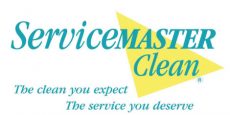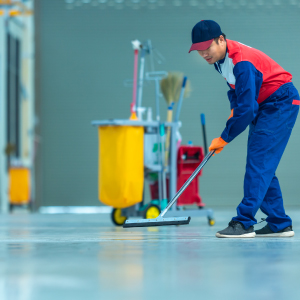Specialist deep cleans are essential in environments where regular cleaning isn’t enough to ensure safety, hygiene, or operational effectiveness. While daily cleaning routines generally keep office spaces clean and tidy, they can miss hidden contaminants that build up over time. And although deep cleans are beneficial in many settings, they are crucial in places such as industrial warehouses, manufacturing plants, care homes, and medical environments – particularly where health and safety standards are tightly regulated or where large volumes of people pass through on a regular basis.
In industrial environments, machinery, high-level structures, ventilation systems, and production lines can accumulate grime, grease, and potentially hazardous residues that are difficult to remove without specialist equipment and expertise. These areas can affect both operational efficiency and workplace safety. Specialist industrial cleaning might involve the safe treatment of oil-stained surfaces, the removal of flood water, or the thorough cleaning of large premises following a challenging or high-risk situation. In all cases, the process calls for experienced professionals who understand the correct procedures and use the appropriate tools and specialist products to achieve safe and effective results.
Some environments benefit from regular deep cleaning to support high standards of hygiene and safety, especially where ventilation systems, ductwork, or extraction units are in use. Over time, grease and other residues can build up in these areas, which may compromise cleanliness and increase the risk of fire if left unchecked. A thorough, professional clean is often the most effective way to manage these concerns. In much the same way, areas where food is prepared or processed need to be kept to a high standard to help minimise the risk of cross-contamination, pest issues, or lingering odours – all of which can be addressed through specialist deep cleaning.
Specialist deep cleans are also sometimes required in more delicate or challenging situations, such as after a distressing event, in cases of extreme hoarding, or where biohazards are present. These types of cleans must be approached with discretion, care, and respect for the circumstances. Whether it involves the safe removal of hazardous materials, sewage, or the deep cleaning of properties affected by difficult to treat residues, or long-term nicotine staining, the process goes well beyond routine cleaning. It calls for a combination of professional expertise, careful handling, and thorough sanitisation to restore the space safely and appropriately.
Infection control is another increasingly vital aspect of specialist deep cleaning, especially in the wake of global health threats. With pathogens such as MRSA, E-Coli, and C-Diff becoming more resistant to traditional disinfectants, advanced cleaning products and processes are now required to combat the risks effectively. Long-lasting antimicrobial treatments and systematic deep cleans are key solutions for facilities needing to stay ahead of infection risks.
Even in more routine settings such as offices or retail spaces, there’s a clear argument for occasional specialist deep cleans. Over time, bacteria and allergens can build up on shared equipment, upholstery, hard floors, and even behind appliances. A thorough deep clean can enhance indoor air quality, reduce the spread of illness, and improve staff wellbeing and productivity.
Ultimately, specialist deep cleaning is about more than just visual cleanliness. It’s about creating and maintaining safe, hygienic, and legally compliant environments whether commercial, industrial, or domestic. That’s why it’s so important to choose a specialist, professional cleaning company with the expertise, equipment, and discretion to deliver the service to the highest possible standard.







